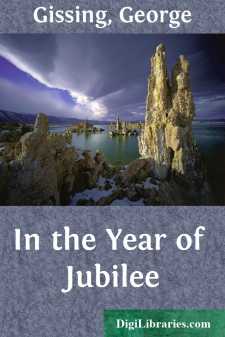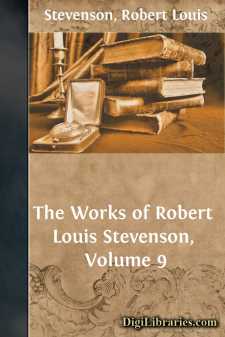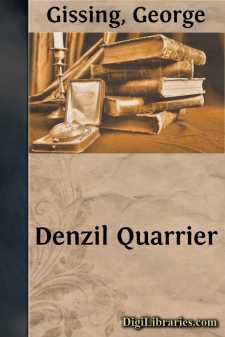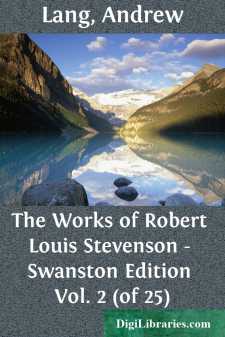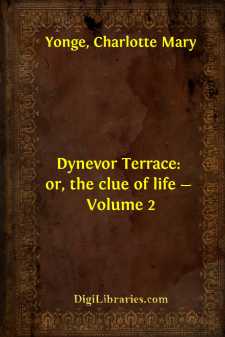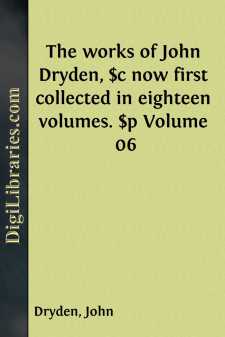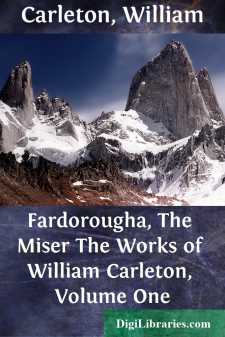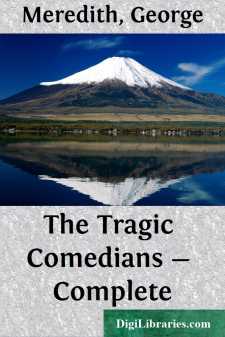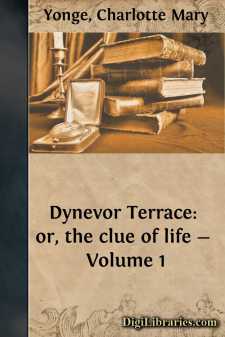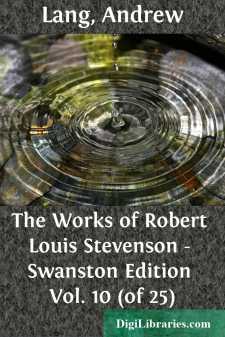Literary Collections
- American 84
- Ancient, Classical & Medieval 14
- Asian 1
- Australian & Oceanian 1
- Canadian 55
- Continental European 121
- English, Irish, Scottish, Welsh
- Essays 160
- General 24
- Letters 46
- Middle Eastern 1
English, Irish, Scottish, Welsh Books
Sort by:
by:
George Gissing
CHAPTER 1 At eight o'clock on Sunday morning, Arthur Peachey unlocked his front door, and quietly went forth. He had not ventured to ask that early breakfast should be prepared for him. Enough that he was leaving home for a summer holiday—the first he had allowed himself since his marriage three years ago. It was a house in De Crespigny Park; unattached, double-fronted, with half-sunk basement,...
more...
THE FOREIGNER AT HOME “This is no’ my ain house; I ken by the biggin’ o’t.” Two recent books, one by Mr. Grant White on England, one on France by the diabolically clever Mr. Hillebrand, may well have set people thinking on the divisions of races and nations. Such thoughts should arise with particular congruity and force to inhabitants of that United Kingdom, peopled from so many different...
more...
by:
George Gissing
CHAPTER I For half an hour there had been perfect silence in the room. The cat upon the hearthrug slept profoundly; the fire was sunk to a still red glow; the cold light of the autumn afternoon thickened into dusk. Lilian seemed to be reading. She sat on a footstool, her arm resting on the seat of a basket-chair, which supported a large open volume. But her hand was never raised to turn a page, and it...
more...
by:
Andrew Lang
THE SECOND CABIN I first encountered my fellow-passengers on the Broomielaw in Glasgow. Thence we descended the Clyde in no familiar spirit, but looking askance on each other as on possible enemies. A few Scandinavians, who had already grown acquainted on the North Sea, were friendly and voluble over their long pipes; but among English speakers distance and suspicion reigned supreme. The sun was soon...
more...
CHAPTER I. One single flash of glad surpriseJust glanced from Isabel's dark eyes,Then vanished in the blush of shameThat as its penance instant came—'O thought unworthy of my race!' The Lord of the Isles. As little recked Fitzjocelyn of the murmurs which he had provoked, as he guessed the true secret of his victory. In his eyes, it was the triumph of...
more...
by:
John Dryden
LIMBERHAM. The extreme indelicacy of this play would, in the present times furnish ample and most just grounds for the unfavourable reception it met with from the public. But in the reign of Charles II. many plays were applauded, in which the painting is, at least, as coarse as that of Dryden. "Bellamira, or the Mistress," a gross translation by Sir Charles Sedley of Terence's...
more...
by:
William Carleton
PART I. Fardorougha, the Miser. It was on one of those nights in August, when the moon and stars shine through an atmosphere clear and cloudless, with a mildness of lustre almost continental, that a horseman, advancing at a rapid pace, turned off a remote branch of road up a narrow lane, and, dismounting before a neat whitewashed cottage, gave a quick and impatient knock at the door. Almost instantly,...
more...
by:
George Meredith
CHAPTER I An unresisted lady-killer is probably less aware that he roams the pastures in pursuit of a coquette, than is the diligent Arachne that her web is for the devouring lion. At an early age Clotilde von Rudiger was dissatisfied with her conquests, though they were already numerous in her seventeenth year, for she began precociously, having at her dawn a lively fancy, a womanly person, and...
more...
CHAPTER I. Farewell rewards and fairies,Good housewives now may say,For now foul sluts in dairiesMay fare as well as they. BP. CORBET. An ancient leafless stump of a horse-chesnut stood in the middle of a dusty field, bordered on the south side by a row of houses of some pretension. Against this stump, a pretty delicate fair girl of seventeen, whose short lilac sleeves revealed...
more...
by:
Andrew Lang
CHAPTER I IN WHICH JOHN SOWS THE WIND John Varey Nicholson was stupid; yet stupider men than he are now sprawling in Parliament, and lauding themselves as the authors of their own distinction. He was of a fat habit, even from boyhood, and inclined to a cheerful and cursory reading of the face of life; and possibly this attitude of mind was the original cause of his misfortunes. Beyond this hint...
more...


